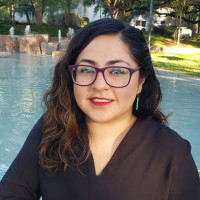
In Roopika Risam’s recent book New Digital Worlds (2019), she proposes that “those of us who are equipped with the capacity for humanities inquiry [and are committed to social justice] have a responsibility to intervene” in the legacies of colonialism by “creating projects to challenge the exclusions in the record of digital knowledge” (139-140). It is imperative to bring this call to action to the abundant legacy of colonialist production in regards to border and borderlands representations. It is crucial to reclaim the humanity of communities, such as the ones along the Mexico-U.S. border, by critically contextualizing and reshaping knowledge production through the use of digital methods and tools, as well as collaborative practices. Nevertheless, as a member of the border community, it is necessary to question and consider alternative ways to work with and without the institution- and university-based initiatives, that own, control and direct the material, structure and meaning of DH projects connected to personal representations and/or critical issues. Based on my experience, as cofounder of Borderlands Archive Cartography and team member of United Fronteras, I will discuss the importance of tracing, recompiling and documenting the cultural, literary and digital record of the binational-transnational area of the U.S.-Mexico border, in order to bring to the forefront the various ways in which historical realities, past and present socio-political conditions, and local experiences of this region are being imagined, showcased, studied and interpreted.
Sylvia Fernández is a Ph.D. Candidate with the Department of Hispanic Studies at the University of Houston. Her research is on Mexican and Latino/a Literature with a focus on Border Studies, Women’s, Gender and Sexualities Studies, Hispanic Archives, and Digital Humanities. Among her DH collaborations, she cofounded Borderlands Archives Cartography (BAC), is part of the core team of Torn Apart / Separados, and the ongoing project of United Fronteras.
A continuously updated schedule of talks is also available on the Digital Dialogues webpage.
Unable to attend the events in person? Archived podcasts can be found on the MITH website, and you can follow our Digital Dialogues Twitter account @digdialog as well as the Twitter hashtag #mithdd to keep up with live tweets from our sessions. Viewers can watch the live stream as well.
All talks free and open to the public. Attendees are welcome to bring their own lunches.
Contact: MITH (mith.umd.edu, mith@umd.edu, 301.405.8927).
